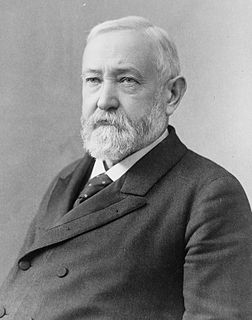A Quote by Michael Lewis
A thought crossed his mind: How do you make poor people feel wealthy when wages are stagnant? You give them cheap loans.
Related Quotes
We need to realize that these industrial methods of farming have gotten us used to cheap food. The corollary of cheap food is low wages. What we need to do in an era when the price of food is going up is pay better wages. A living wage is an absolutely integral part of a modern food system, because you can't expect people to eat properly and eat in a sustainable way if you pay them nothing. In fact, it's cheap food that subsidized the exploitation of American workers for a very long time, and that's always been an aim of cheap food.
A lot of Americans desperately want to believe that China is full of poor people who can't innovate, and the only goods they make are cheap, toxic rip-offs our Western brands. They want to believe the only reason the Chinese economy is surging is because the West wants cheap goods and China knows how to make them that way.
If a market exists for low-paid work, then we should think about how we can make this type of work more attractive by providing government assistance. Of course, the wage-earner must be able to live off of his wages. We will not allow poverty wages or dumping wages. But the wage earner can receive a combined wage that includes both his actual wages and a government subsidy.
I cannot always sympathize with that demand which we hear so frequently for cheap things. Things may be too cheap. They are too cheap when the man or woman who produces them upon the farm or the man or woman who produces them in the factory does not get out of them living wages with a margin for old age and for a dowry for the incidents that are to follow. I pity the man who wants a coat so cheap that the man or woman who produces the cloth or shapes it into a garment will starve in the process.
His mother called such people ignorant and superstitious, but his father only shook his head slowly and puffed his pipe and said that sometimes old stories had a grain or two of truth in them and it was best not to take chances. It was why, he said, he crossed himself whenever a black cat crossed his path.
With his continual doctrine [Bishop Hooper] adjoined due and discreet correction, not so much severe to any as to them which for abundance of riches and wealthy state thought they might do what they listed. And doubtless he spared no kind of people, but was indifferent to all men, as well rich as poor, to the great shame of no small number of men nowadays. Whereas many we see so addicted to the pleasing of great and rich men, that in the meantime they have no regard to the meaner sort of poor people, whom Christ hath bought as dearly as the other.


































